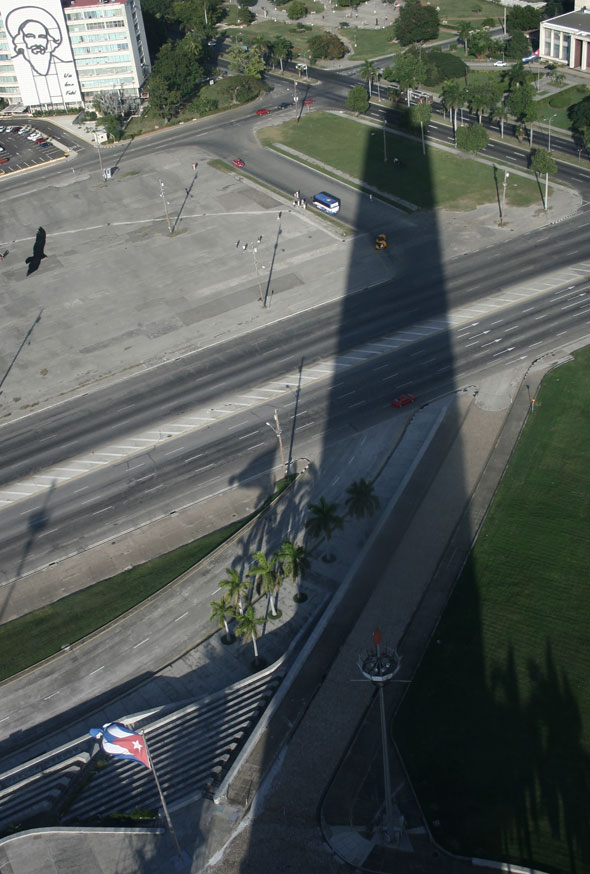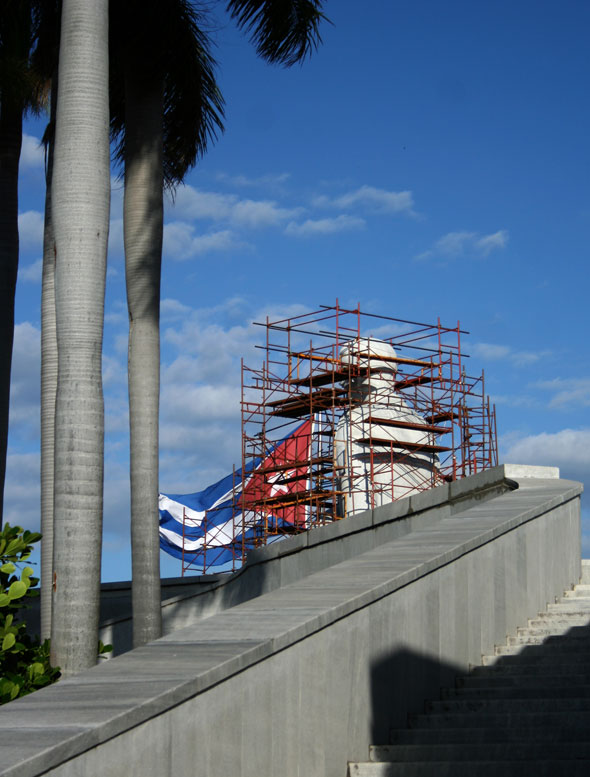I saw him. I’m sure it was him. He didn’t recognize me, absorbed in himself as he was, sitting in a bar on Belascoaín Street, listening to Olga Guillot on a decrepit RCA Victrola.
It was four in the afternoon on September 8th. A desert sun seemed like it was going to melt the Havana asphalt. Not a drop of breeze was flowing. Nearby, in a dirty cafe, some people were trying to refresh themselves with an insipid orange juice.
It was the Day of the Virgin of Charity. Many people walked hastily — almost all of them dressed in yellow, the color of Ochun, her equivalent in the Yoruba religion. They were headed toward the church that bears her name, at the corner of Salud and Manrique, Havana Center. They were going to participate in the procession and Mass in honor of Cachita, as the Cubans call their patron saint.
To pass the time, I sat in a bar with a bar made from blackened mahogany, and when I turned my head, there he was, with two friends. The victrola, rescued from some warehouse, was playing, one after the other, some boleros by Olga Guillot, Blanca Rosa Gil, La Lupe and Freddy, the fat one who gave me goose pimples.
The friends were drinking from a Caney rum bottle lazily, in their crystal glasses. He, with his eyes closed, was enjoying the music, while a cigarette threatened to burn his fingers.
I didn’t want to call out his name, so as not to break the spell. But I swear, he who I saw sitting with his friends was the poet who lived on the third floor in a building on Peñalaver Street, in the Victoria neighborhood. He had come incognito to this Havana that has less brilliance and enchantment each time.
That afternoon I saw Raúl Rivero, one of my journalistic icons, who, from the end of 1995 until March 2003, was my boss at the Cuba Press Agency. Then I was a rookie with ambitions of setting the world on fire. I have recorded in my head the journalistic advice he’d given me. Thirty minutes of talking with Rivero was for me like three years of university classes.
In that fateful spring, the Poet of Victoria was sentenced to 20 years imprisonment by an arrogant and closed government which did not want — nor does not want — ideas to flow freely.
One winter afternoon in 2004 he left the Canaleta prison, in Ciego de Ávila, the land that had seen him born in 1945. A few months later, he went into exile, with his vices and manias in tow.
In splendid Madrid, he misses his friends. Because of that, on Charity Day he dropped in on Havana. I saw him. Listening to boleros in a bar on Belascoaín Street. It must have been a miracle of the Virgin.
Translated by: JT
September 9, 2010


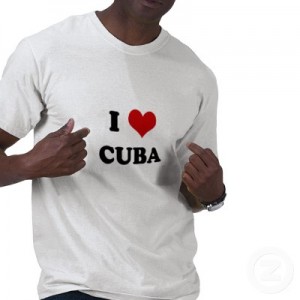 A few weeks ago, I called different ministries of the economic sphere asking for facts and figures. In a humiliating manner they told me that these issues were not my concern. “Trust Fidel and Raul, they always do the best for the country,” replied a technocrat in a lecturing tone.
A few weeks ago, I called different ministries of the economic sphere asking for facts and figures. In a humiliating manner they told me that these issues were not my concern. “Trust Fidel and Raul, they always do the best for the country,” replied a technocrat in a lecturing tone.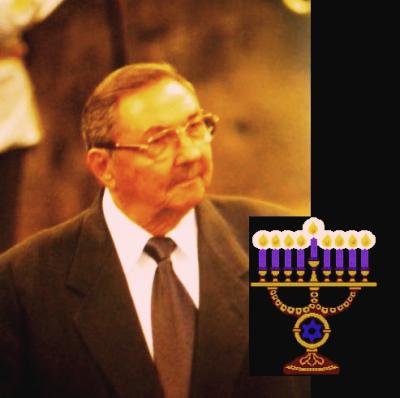
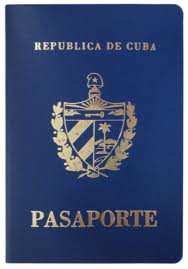 It’s only thirty-two pages in a blue booklet with the shield of the Republic engraved on the cover. This Cuban passport looks more like a safe-conduct than an ID, with it we can escape from insularity though it still doesn’t guarantee we can board an airplane.
It’s only thirty-two pages in a blue booklet with the shield of the Republic engraved on the cover. This Cuban passport looks more like a safe-conduct than an ID, with it we can escape from insularity though it still doesn’t guarantee we can board an airplane.
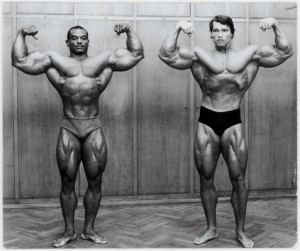 On Sunday morning November 21 you could hardly walk down Galiano Street in Central Havana, as expectation reigned in front of the American Theatre, home of musical and comedic performances, now converted into a Coliseum of muscles by the Cuban Association of Bodybuilding, which held its gala Challenge of Champions, broadcast on the sports channel of national television, something unusual since athletes who cultivate the aesthetic of the body are not yet officially recognized.
On Sunday morning November 21 you could hardly walk down Galiano Street in Central Havana, as expectation reigned in front of the American Theatre, home of musical and comedic performances, now converted into a Coliseum of muscles by the Cuban Association of Bodybuilding, which held its gala Challenge of Champions, broadcast on the sports channel of national television, something unusual since athletes who cultivate the aesthetic of the body are not yet officially recognized.